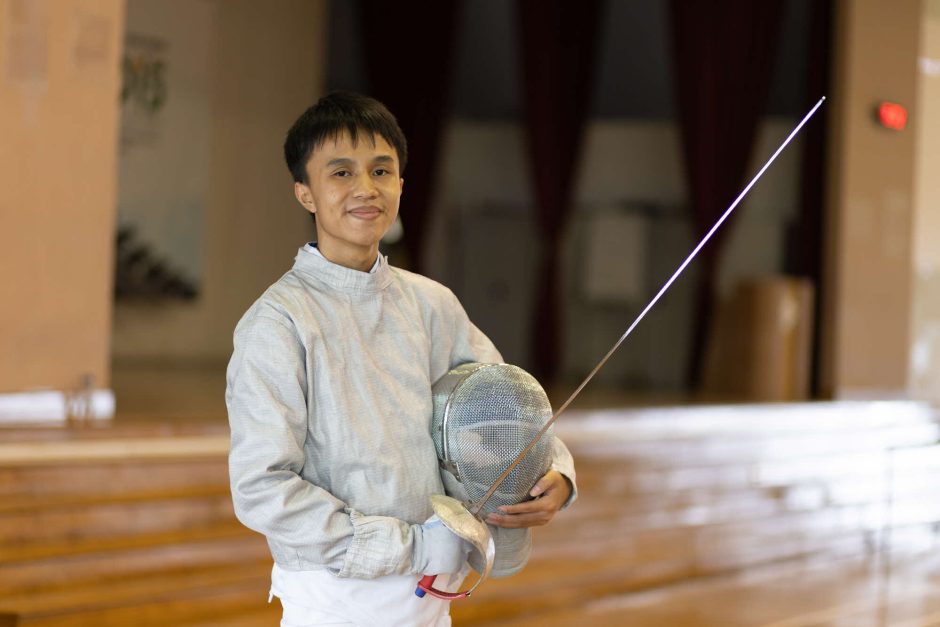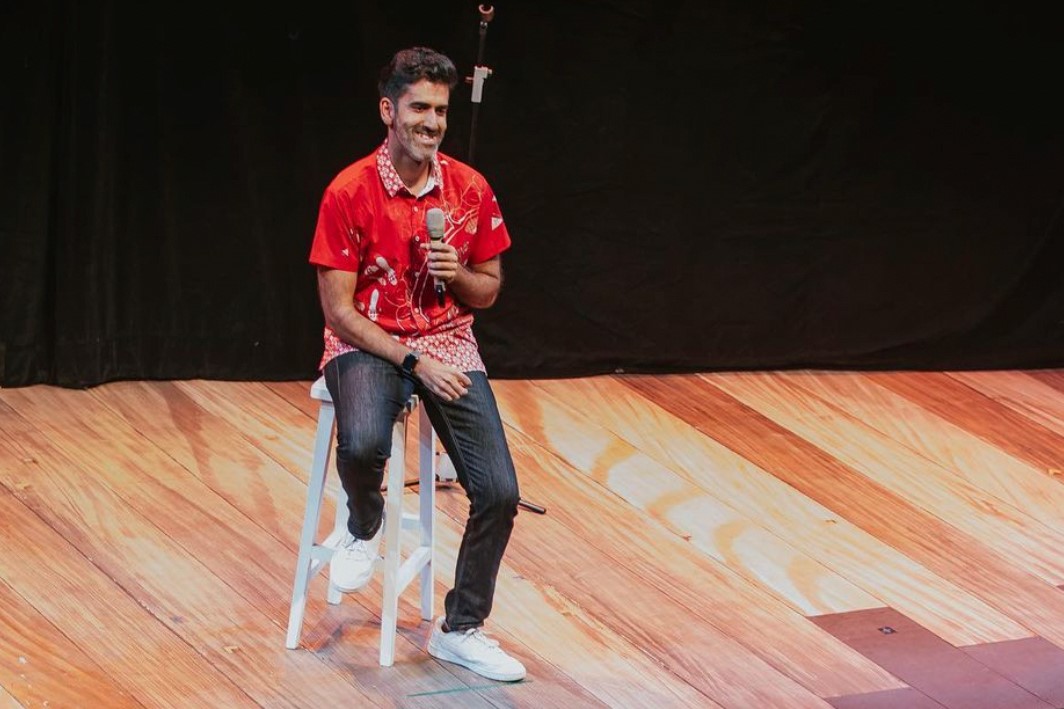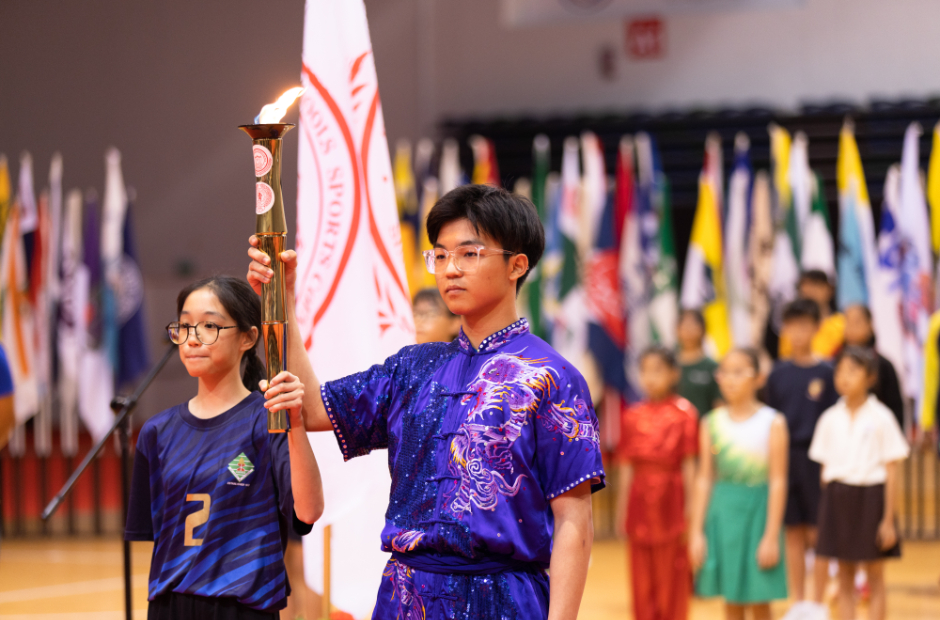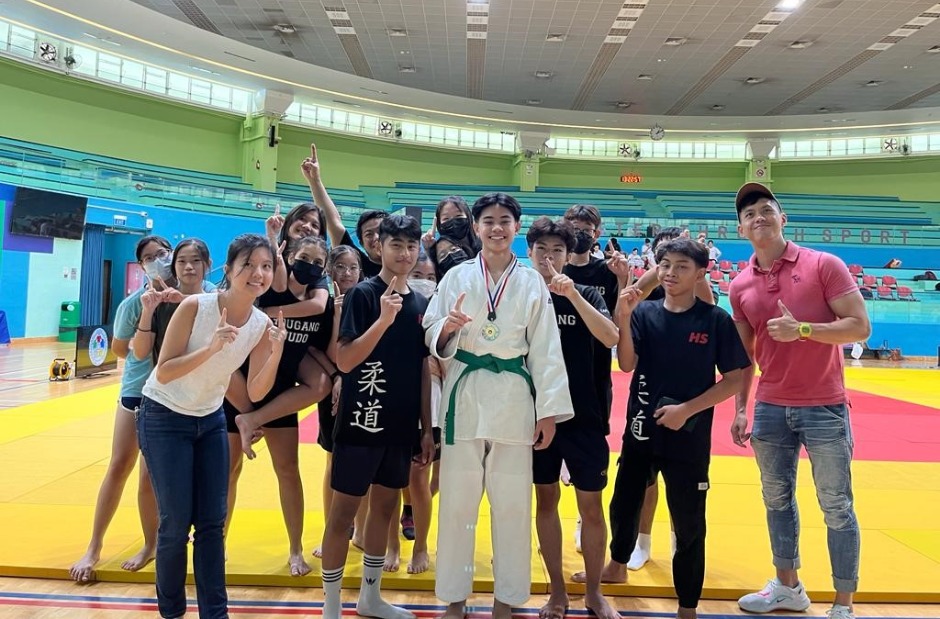Developing Values through Sports and Life Skills
12 Jun 2012
Pupils at East Coast Primary School put up a show based on the dance moves they learned during modular CCA.
It’s Tuesday at East Coast Primary School and morning assembly has just ended. But instead of marching to class for lessons, there’s an air of anticipation among the Primary 1 and 2 pupils – for the next two hours will usher in a flurry of activities to expose the children to new skills and experiences. From gymnastics and skipping rope, to netball and ethnic dances, pupils will get to try out these activities and, through play and performing, pick up values that will help them take better care of themselves as well as others.
Upper primary pupils, too, get to take part in these activities, known as modular CCAs. They get their turn on Wednesdays, when the children dabble in sports such as handball and inline skating, strum the ukulele, or learn how to bake or cook simple dishes. It may seem elementary to some, but for many pupils, the modular CCA programme is a chance to engage in activities they might otherwise not have access to outside of school, and perhaps even unearth hidden talents.
Take Mohd Shafiq, a Pri 6 pupil who is an active member and leader of the school’s skipping team, having learnt the ropes – literally – during modular CCA sessions.
Mr Alvin Tan, the school’s head of department for PE/CCA and teacher-in-charge of modular CCA, says that Shafiq’s command of the sport became evident very quickly and he was invited to take up skipping as an enhanced CCA. Since then, Shafiq has represented the school in rope skipping competitions at the zonal and national levels.
The modules also impart values relevant to both the activity as well as other aspects of life. “For example, in sports, they learn about sportsmanship and sports safety,” explains Mrs Kris Hay, head of department for character and citizenship education, and the teacher-in-charge of the school’s values education programme.
Ironing is one of many life skills taught to encourage pupils to help out and take better care of themselves at home.
Eka Yulniesa, for instance, is a Pri 6 pupil who relishes games such as basketball and ultimate frisbee. Reflecting on how modular CCAs have shaped her outlook, she says, “It has taught me teamwork. For example, in basketball you have three passes before shooting the ball. If we know how to communicate well and coordinate with each other, we can play the ball within three passes – and score!”
Learning to take care of themselves
Originally, the modular CCA programme was initiated with the goal of giving pupils – many of whom come from less privileged backgrounds or have families who work long hours – an avenue to pursue healthy interests and learn to be responsible for themselves. To this end, pupils at every level acquire basic skills useful at home, such as sweeping the floor, making the bed, organising their wardrobe and ironing clothes.
“We hope to equip them with these skills, so they are able to take care of themselves while their parents are at work,” says Mrs Hay. As Pri 3 pupil Teo Jia Xin recalls, “I like the Life Skills programme in Pri 2. We learnt how to sweep the floor and fold our clothes. If I learn these skills, I can help my family do household chores and my parents won’t be so tired when they come back from work.”
Mr Tan adds, “We want the pupils to learn not just sports skills but also life skills.” Describing the “I Can Cook” programme, he points out that pupils go from making simple pizzas in Pri 1 to putting together their own salads, soups, chapati and cookies in the upper levels. Mohd Shafiq, for instance, learned in this year’s cooking programme to make shumai (Chinese-style dumplings) using different ingredients such as diced carrots.
Music lessons in modular CCA, expose pupils to musical techniques, as well as the importance of working and being creative together.
Improving self-motivation
According to Mrs Hay, the modular CCA programme has also helped to boost attendance rates since it began in 2010. Recalling the challenges the school faced then, she says, “We thought about how we could use this programme to attract pupils to come to school, despite the situation many had at home.” The teachers lined up a diverse range of activities that include tchoukball, sepak takraw, angklung and “stomp” (a form of street percussion). As a result, absenteeism has declined. “Pupils look forward to coming to school, and not just when there’s modular CCA that day,” she remarks.
Moreover, all modular CCA activities are provided free of charge, without the pupils having to dip into their Edusave accounts. The school draws on various other funds to sponsor gear such as inline skates and knee pads. “The children love these activities, especially the sports, because they cannot get these at home. Their parents are either too busy or have financial constraints,” states Mrs Hay.
Mdm Muryani, the head of department for Aesthetics, observes that the sports modules also help to motivate pupils with low self-esteem. “When they excel in the sports – and they do! – they show that they have resilience. We give them the opportunity to taste success,” she explains. “That’s a part of modular CCA we feel very strongly about, that everyone has something to contribute, something they can do and excel in.”
The modular CCA programme has also fostered a more cordial atmosphere in school. “When I walk around school, I see more pupils coming to me to say ‘Good morning,'” Mrs Hays says. “That’s how they put what they have learnt into action. It’s very much a whole-school approach. Everyone works together to not only sharpen their minds but also shape their lives.”




.jpg)
